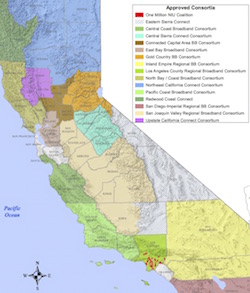FCC broadband lifeline proposal is slow and slower
![By This photo was taken by Przemysław Jahr Autorem zdjęcia jest Przemysław Jahr Wykorzystując zdjęcie proszę podać jako autora: Przemysław Jahr / Wikimedia Commons (Own work) [Public domain], via Wikimedia Commons](https://www.tellusventure.com/images/2016/3/3g_phone.jpg)
Low aspirations.
The broadband lifeline plan under consideration by the Federal Communications Commission would perpetuate the gap between people who have access to wireline broadband at home, and those who rely solely on mobile service. Floated last week by FCC chair Tom Wheeler, the new program would allow low income consumers to opt for subsidised broadband service, instead of or in addition to lifeline telephone service.
But it sets one standard for wireline (and fixed wireless) subscriptions, and another for mobile.… More

![By mattbuck (category) (Own work by mattbuck.) [CC BY-SA 2.0 (https://creativecommons.org/licenses/by-sa/2.0) or CC BY-SA 3.0 (https://creativecommons.org/licenses/by-sa/3.0)], via Wikimedia Commons](https://www.tellusventure.com/images/2016/2/crash_barrier.jpg)
![By No machine-readable author provided. Fernando S. Aldado~commonswiki assumed (based on copyright claims). [Public domain], via Wikimedia Commons](https://www.tellusventure.com/images/2016/2/network_effect.png)



![By MPD01605 (talk · contribs) (Own work) [Public domain], via Wikimedia Commons](https://www.tellusventure.com/images/2016/2/highway_signs.jpg)
![By Ltljltlj [Public domain], via Wikimedia Commons](https://www.tellusventure.com/images/2016/2/san_benito_county_g1.jpg)

![By Katatonic (not a high-five) [CC BY 2.0 (https://creativecommons.org/licenses/by/2.0)], via Wikimedia Commons](https://www.tellusventure.com/images/2016/2/sockem.jpg)